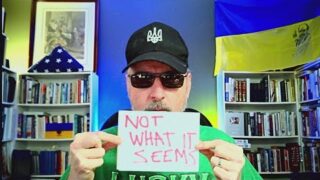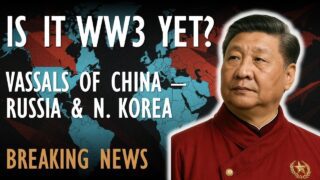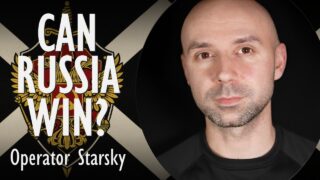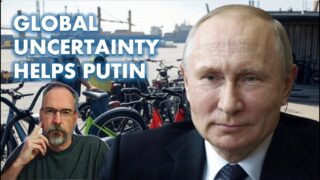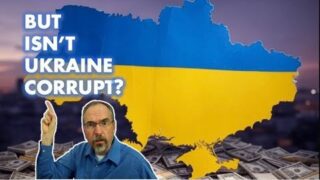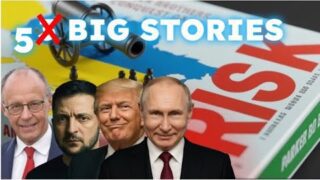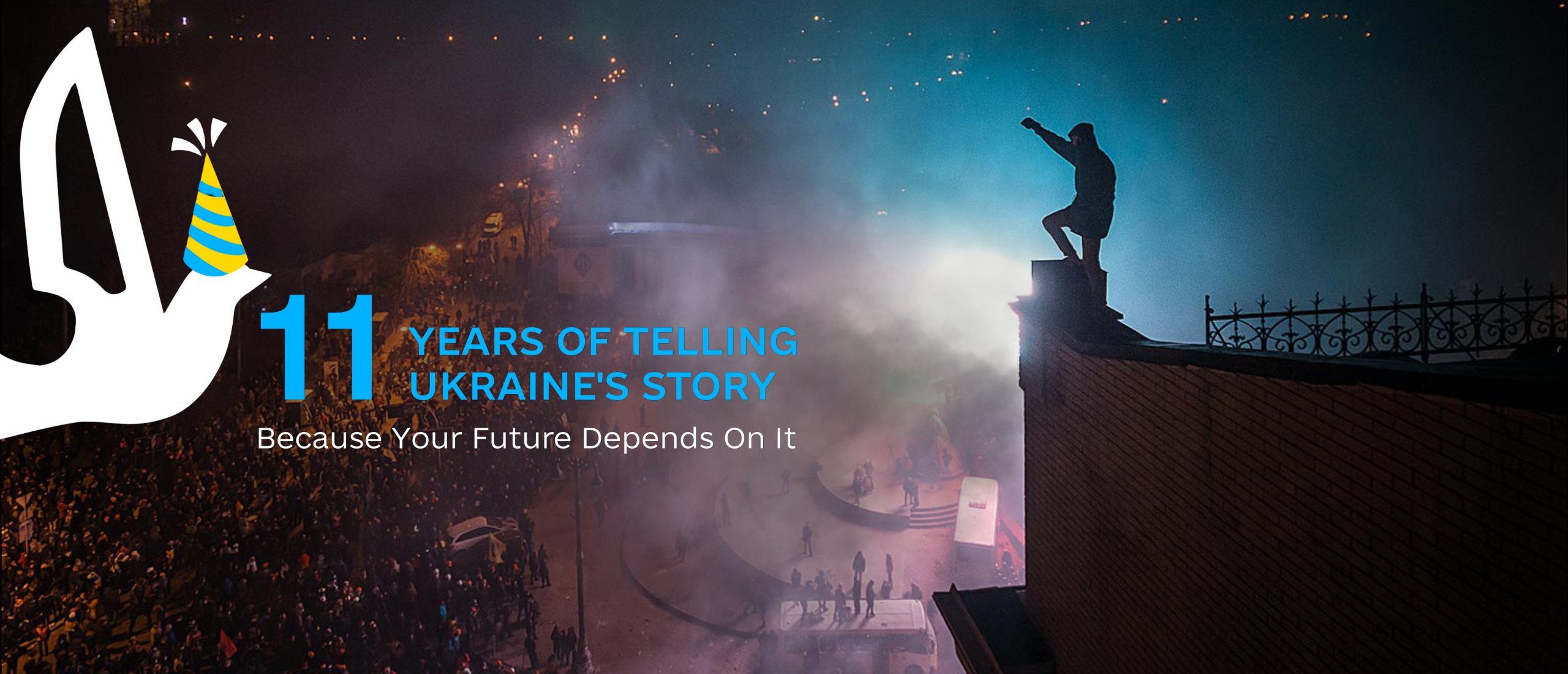
The making of Euromaidan Press: from Maidan to global media platform
In 2014, as fires blazed on Maidan, a Guardian article about “worrying far-right presence” convinced a Western observer to cancel his trip to Kyiv. Despite witnessing the revolution firsthand, spending nights coordinating volunteer networks at the protest headquarters, I was powerless to counter these narratives. My lived experience seemed secondary to Western media reports shaped by Moscow’s propaganda machine. It was a stark lesson in how Russian narratives could override ground truth – even for those closest to events. This gap between Ukraine’s reality and its international perception birthed Euromaidan Press.
Then came a defining moment that showed the power of words. After Kyiv riot police shot Euromaidan protesters, while foreign leaders tried brokering deals with the Russian-backed dictator, Volodymyr Parasiuk got on stage and declared that the criminal Yanukovych must step down or protesters would take up arms. Those simple words, spoken against all “it’s not possible” arguments, reverberated through the crowd. Of course, the criminal must go, no matter his grip on the judges, the parliament, the ministries, the media, the titushkas, the robocop police who come to beat us and shoot us. He simply must, because it isn’t right! The next day, inexplicably, the dictator fled. The power of one voice speaking truth had shifted reality.
At that crucial moment, Ukraine had very little English-language media presence. The Ministry of Foreign Affairs lacked an updated English section, and only the paywalled Kyiv Post served international audiences. A group of journalists, editors, and translators – both in Ukraine and abroad – recognized this critical gap and moved to fill it.
What began as a volunteer initiative quickly evolved into something larger. As Russia occupied Crimea and launched its war in Donbas, awareness of Ukraine’s plight was so low that France was still planning to sell Mistral warships to Russia. We joined French activists to prevent the deal. When Russia imprisoned Ukrainian political prisoners, we coordinated the global #FreeSavchenko campaign, co-ran the LetMyPeopleGo campaign, and helped produce “Putin’s Hostages,” recognized as one of Poland’s best documentaries about Russia’s war against Ukraine.
“I understood it as Ukraine’s last chance to change direction,” recalls Andrei, who had emigrated from Ukraine in the Soviet Union’s final days and joined our team. “Most nights I would stay up translating and editing until early morning hours, then wake up for my work commute. But EMPers are amazing, dedicated people.” This commitment to quality despite challenging circumstances became our foundation for professional growth.
Our coverage expanded from reactive reporting to comprehensive analysis. When German technogiant Siemens’ turbines were shipped to Crimea in violation of sanctions, we exposed their complicity through Russian state contracts, leading to an ongoing prosecution. Our analysis of “SurkovLeaks” revealed Russia’s playbook for hybrid warfare, while our investigation showed how the Minsk agreements were designed as a trap for Ukraine’s capitulation.
A key part of our mission became elevating Ukrainian voices and expertise globally. We partnered with leading Ukrainian analysts to explain developments from an informed local perspective. Another part of the mission was to reverse Ukraine’s invisibility by showcasing its culture and history, suppressed by centuries of Russian domination.
Sometimes, our work had an unexpected impact. One Facebook post titled “War mothers” about a Ukrainian mother who enrolled in the army after her son died defending Ukraine against Russian-led forces in eastern Ukraine changed the life of Stefan Bugryn, a Ukrainian diaspora representative living in Australia. He left his advertising career to make the documentary “War mothers” that toured the world, and followed up with a documentary on the Hospitalliers battle medics.
In the spirit of Euromaidan, we brought together volunteers to translate documentary films like The Trial, about imprisoned filmmaker Oleg Sentsov, and Babylon’13’s documentary about killed Euromaidan protesters, Heaven’s Hundred. We elevated the work of human rights activists to expose violations and assess why Western sanctions were ineffective.
Beyond countering external threats, we turned our critical lens inward. “Much of our work focused on the Russian invasion of Donbas and the fragile nature of the new democracy, still fraught with leftover Soviet-style corruption,” Canadian volunteer editor Sonia Maryn explains. Our commitment to critical analysis means asking hard questions about Ukraine’s own challenges. As oligarchs attempted to maintain influence post-Maidan, we tracked both reform successes and failures. This coverage culminated in “The Court,” a film about the creation of Ukraine’s High Anti-Corruption Court, which is now successfully prosecuting top-level corruption cases.
As our reach grew, so did our professional standards. We implemented rigorous fact-checking protocols and developed editorial guidelines for balanced coverage. We created a video guide about Russian propaganda operations and helped develop an online course on disinformation.
Our unique insight into Kremlin operations comes from years of tracking subtle shifts in Russian strategy. We exposed how Russia uses “passportization” in occupied territories, how it manipulates energy supplies for political pressure, and how it exploits existing tensions to create instability.
This analytical depth extends to our coverage of Ukraine’s internal transformation. We’ve documented how reform initiatives face resistance from entrenched interests, tracked the implementation of anti-corruption measures, and analyzed the challenges of judicial reform. When Ukraine’s High Anti-Corruption Court began work, we provided detailed analysis of its cases, explaining both successes and obstacles in dismantling systemic corruption.
Our coverage of regional developments reveals broader patterns in Russia’s neighborhood. As Moldova pursued European integration, we exposed Russian attempts to derail this process through energy blackmail and political interference. When Belarus faced unprecedented protests in 2020, we explained how Lukashenka’s regime borrowed from Russian playbooks for suppressing dissent. Our analysis of Georgia’s democratic backsliding revealed how Russian soft power gradually undermines institutional independence.
We’ve developed particular expertise in military analysis and reform coverage. Through interviews with commanders, soldiers, and volunteers, we identify systemic issues in Ukraine’s defense sector and proposed solutions. When problems arise, we investigate not just the immediate issues but the underlying structural challenges. This approach – finding root causes rather than just reporting symptoms – characterizes all our coverage.
Professional standards evolved with our growth. We implemented fact-checking systems, developed comprehensive source verification protocols, and established clear guidelines for balanced coverage. Every analysis piece must answer key questions: What’s the broader context? What are the underlying patterns? How does this connect to regional and global developments?
Building on our early volunteer spirit, we created a network of expert contributors across Ukraine and Eastern Europe. Ukrainian analysts who first wrote for us now appear in major international media. We’ve helped elevate new voices explaining Ukraine’s transformation: reformers describing their battles against corruption, activists documenting human rights violations, experts analyzing security challenges.
“What I have always appreciated at Euromaidan Press is articles that we don’t see in the West,” notes Michael Garrood, one of our editors from Switzerland. “The human element of conflict doesn’t make it to CNN or grace the pages of the Neue Zürcher Zeitung. Without knowledge of personal experience, we can never hope for more than a superficial comprehension of conflict.”
The full-scale invasion in 2022 validated our approach while demanding its evolution. We expanded to reach over a million monthly readers, added professional journalists to our team, and launched comprehensive coverage of both military and political developments. We documented wartime reality in “Dark Days, Determined People,” showing how individual stories illuminate larger truths about Ukraine’s resistance, and continue to bring you frontline stores from Ukraine and its near abroad.
Throughout our growth, we maintained focus on explaining why Ukraine matters globally. We showed how Ukraine’s anti-corruption efforts offer lessons for other transitional democracies, how its civil society innovations inspire activists worldwide, and how its resistance to authoritarianism represents a crucial battle for democratic values.
Our team members have evolved with the mission while maintaining core values. Tobias, who began helping in Maidan’s soup kitchen, now manages 207 army fundraising campaigns for the Ukrainian army that have raised $1mn since the start of Russia’s full-scale war. “Western politicians still think they can stand on the sidelines,” he notes. “They cannot. Russia is already subverting the values we take for granted from within.”
Today, Euromaidan Press serves as a bridge between Ukraine and the world through professional journalism that never forgets its purpose. Our team combines local insight with global perspective, rigorous standards with meaningful context, and critical analysis with commitment to truth. Ukraine’s invisibility in global media contributed to its lost chance for independence in the 1920s. Today, we’re determined to prevent history from repeating itself.
If this mission resonates with you, join us – become a patron to ensure more stories break through the silence and more voices are heard in the global conversation about democracy’s future.
Become a Patron!
Related:



